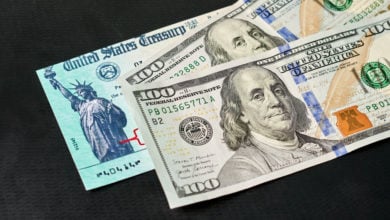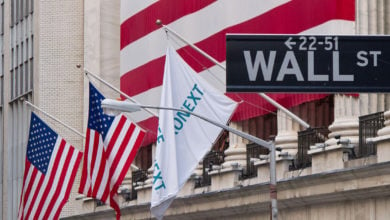One fact conveniently omitted from most references to the
bank bailout of 2008 was that the vast majority of the population opposed it.
Congress received an unprecedented flood of letters and calls demanding that it not turn hundreds of billions of dollars over to Wall Street. But the
Democratic and Republican politicians did it anyway.
This flagrant violation of democracy was hardly unusual. The
bank bailout culminated decades of growing political power among finance
capital. It opened up a new period of blatant warfare against labor unions,
public education, Social Security, Medicare and social services.
In the bankers’ offensive, still in full swing in 2011, they
have occasionally deemed it necessary to entirely eliminate even the pretense
of “democracy.” Below we list three cases. We should study these examples; in them,
we may not be just viewing history, but the future of capitalism.
- The Congressional “super-committee.” The
debt deal struck in August was no “compromise.” It is a bipartisan attack
launched by the White House and its allies in Congress on behalf of the banks
and corporations against the living standards of workers: $917 billion in
spending cuts, with no tax increases on the wealthy. A “super-committee” was
then tasked with coming up with an additional $1.5 trillion in budget cuts and
tax increases, and if it failed—which it did—that would trigger more cuts! The
entire “debt ceiling” crisis was entirely fabricated by Wall Street and its
lieutenants in Washington, a deliberate act of sabotage to rapidly eliminate
decades of hard-won government programs. - Michigan’s “emergency managers.” Several
of the poorest cities in Michigan, once industrial powerhouses, are currently
subjected to “emergency managers” appointed by the governor. Skipping over the
elected officials and legislature, the manager can unilaterally eliminate
programs, lay off workers and void contracts, including those made with labor
unions. Who are these managers? They are direct servants of finance capital,
whose only objective is to cut social spending to restore the “confidence” of
financial investors.The State Senate just passed a law that would allow these managers to remain in
place even if voters successfully file a petition to freeze the emergency
manager law! If the state appoints an emergency manager for Detroit, a full
majority of African Americans in Michigan will be living in municipalities controlled
by such emergency managers. - The new European Union treaty. While
dealing with our own set of problems in the United States, it can sometimes be
daunting to follow the complex political and economic dealings across the
Atlantic. But it’s the same problem—a full-scale, bank-directed attack on labor
unions and the so-called welfare state. The biggest banks are using their
financial leverage to force weaker European economies (namely Ireland, Greece, Portugal
and Spain) into drastic cutback measures. That was a prelude to a bankers-directed
attack on workers’ rights in the larger economies, including Italy and France. These
countries’ elected politicians duly grimace in front of the cameras, but insist
there is no alternative. As with the U.S. bank bailout in 2008 and debt crisis
in 2011, they announce that the emergency leaves no time for political
deliberation, or democratic decision-making.The proposed European Union treaty is the culmination of this process. It
aims to not just “stabilize” the European economies, but impose a new order in
which the power of the banks is streamlined and centralized, so that economic
decision-making is shielded from the will of the people. The Greek Prime
Minister George Papandreou was even forced to resign for having dared to suggest that
the Greek people should have an opportunity to vote in a referendum on the
bank-imposed austerity plan. The new treaty obliges EU members to change their
constitutions to accept a “balanced-budget rule” that will hold down social
spending, and those that dare exercise their sovereignty will be brought before
the continent-wide European Court of Justice. Debtors’ jails fell out of use a
few hundred years ago, but have apparently returned with entire nation-states
potentially held prisoner.
These examples show the
general tendency of capitalism to concentrate economic and political power in
ever fewer hands, and in particular the capacity of the world’s major banks to
knock down all institutions, constitutions and political traditions that stand
in their way.
Capitalism shedding its democratic pretenses
In class societies of the past, there was never a question
as to who held political power. Those who possessed disproportionate wealth—the
kings, queens, lords and slaveholders—dominated politics openly and without
shame. Requiring neither the consent of the governed nor the illusion of
choice, they claimed that divine providence or a superior bloodline had granted
their place atop society.
Modern capitalism was different—at least in its homelands,
but not in its colonies. It established new political ideas and institutions
based on the principle that governments would be “of, by and for the
people” invested with inalienable rights. It required intense
struggle—including the Civil War—to make the country even start to match this
rhetoric, as oppressed groups fought for inclusion into the citizenry.
But after all that struggle and sacrifice, and all those
reforms, “the people” have never ruled. For as those at the bottom of society achieved formal, civil
and political rights, the real power—to determine the shape and direction of
the economy—has remained in the hands of a tiny group of capitalists, and
within that tiny group an even smaller group of banks. While this tiny group
long tolerated the limited practice of “democracy”—indeed preferring it to the
open rule practiced by their royal and aristocratic predecessors—they clearly
are not married to it.
Real democracy starts with overthrowing the bankers’
dictatorship
The current media spin is that 2011 was the year of the
protester, and thus a reinvigoration of democracy. Some even go so far as to
say that the Egyptian revolution aimed at copying “the freedoms we have here.” No.
2011 was a year of suppressed democracy, of protesters arrested, pepper-sprayed
and clubbed, or worse. It was a year of increasingly open dictatorship of the
banks.
But it was also a year of struggle—but not struggle to
return to the “democracy” of the past in some golden age that never existed.
The people who took to the streets, often risking life and limb, did not come
for the vote or formal citizenship. They weren’t demanding a better law here
and there. They weren’t demanding to be included in an economic system that is
rigged against them, or a better politician to vote for. When they demand
democracy, they want something entirely new.
The Egyptian struggle showed that the overthrow of an
individual dictator is relatively easy compared to the overthrow of the
institutions of the dictatorship. It requires raising the big questions—of what
kind of society and economy we want. The Party for Socialism and Liberation is
organizing towards the revolutionary replacement of one power, the Wall Street
dictatorship, with another power: the vast majority of society. That is real
democracy—poor and working people finally taking control of their collective
destiny.






